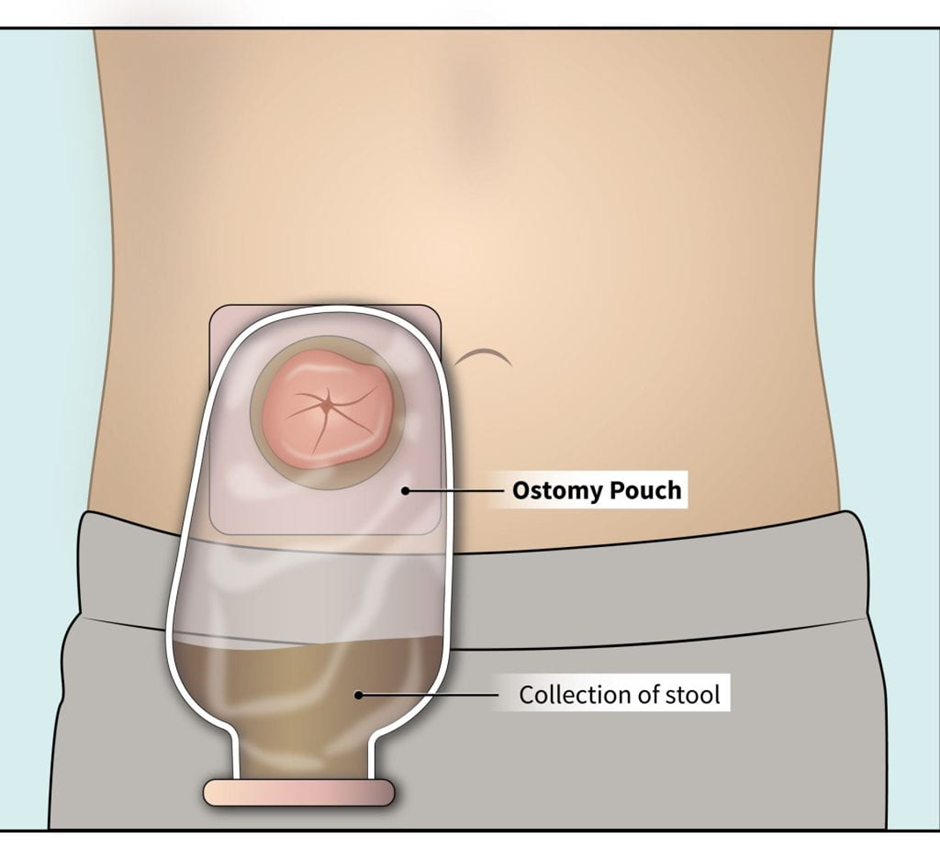A nurse is reinforcing teaching with a client who has an ostomy. Which of the following statements by the client indicates an understanding of the teaching?
"I will press on the skin barrier for 30 seconds to ensure that it adheres."
"I will clean around the stoma with a moisturizing soap."
"I will apply a thin layer of talc powder around the stoma before placing the appliance."
"I will cut an opening in the skin barrier that is 1⁄2 inch larger than the stoma."
The Correct Answer is A
Choice A Reason:
Pressing on the skin barrier for about 30 seconds ensures that it adheres properly to the skin, which helps secure the ostomy appliance and prevents leakage.
Choice B Reason:
Moisturizing soap is not recommended for cleaning around the stoma, as it can leave a residue that interferes with the appliance's adhesion. Mild soap without moisturizers or just water should be used.
Choice C Reason:
Applying talc powder around the stoma can prevent the appliance from adhering properly, leading to leakage. It is not recommended for ostomy care.
Choice D Reason:
The skin barrier should be cut to fit closely around the stoma, leaving no more than a 1/8 inch gap, not 1/2 inch. A larger opening may cause skin irritation or leakage.

Nursing Test Bank
Naxlex Comprehensive Predictor Exams
Related Questions
Correct Answer is C
Explanation
A. A family member is napping in the client's room.
This situation, while not ideal, doesn't involve harm or potential harm to a client, staff, or visitor. It may be addressed through communication and policy reminders but may not require an incident report.
B. A client refuses to eat at mealtime.
Client refusal to eat, while concerning, is not an unexpected or unusual event. It is a common aspect of care, and incident reports are not typically used for such situations.
C. A client's bed alarm is malfunctioning.
This situation involves a malfunction in equipment designed to ensure client safety. It has the potential to compromise the safety of the client and may require an incident report to document the issue and address it appropriately.
D. An assistive personnel is late for the upcoming shift.
Lateness may be an issue that needs addressing, but it's not typically considered an incident requiring a formal incident report. This situation may be addressed through workplace policies and communication.
Correct Answer is B
Explanation
Choice A Reason:
Setting the maximum water heater temperature to 54.4° C (130° F) is appropriate. This temperature is too high and could pose a burn risk, especially for someone with impaired vision who might not easily detect very hot water.
Choice B Reason:
Painting the edges of steps for contrast is appropriate. This measure helps increase visibility by creating a visual contrast between the edges of steps and the surrounding area, aiding the individual in identifying the steps more easily, even with reduced vision.
Choice C Reason:
Securing extension cords across walkways is inappropriate. Placing extension cords across walkways can create tripping hazards, particularly for someone with vision loss who may have difficulty seeing these obstacles.
Choice D Reason:
Using 40-watt bulbs to light hallways is inappropriate. While adequate lighting is crucial for individuals with vision impairment, using only 40-watt bulbs might not provide sufficient illumination. It's recommended to use higher-wattage bulbs or brighter lighting sources to ensure better visibility in the home.
Whether you are a student looking to ace your exams or a practicing nurse seeking to enhance your expertise , our nursing education contents will empower you with the confidence and competence to make a difference in the lives of patients and become a respected leader in the healthcare field.
Visit Naxlex, invest in your future and unlock endless possibilities with our unparalleled nursing education contents today
Report Wrong Answer on the Current Question
Do you disagree with the answer? If yes, what is your expected answer? Explain.
Kindly be descriptive with the issue you are facing.
